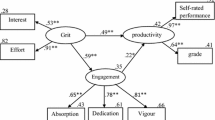Abstract
The efficiency and style of problem solving for rules of varying difficulty was examined in a depressed college group. The depressed group and a control group of nondepressed students did not differ in the time required to solve conceptual problems. There were differences for the more difficult problems in the number of cards required for solution and problem-solving efficiency (defined as a strategy score).Both groups were able to improve their performance scores between problem (rule)learning and identification phases of the study. Expectations for and ratings of performance did not show a comparable pattern of results to the problem-solving measures; whereas the depressives had fixed perceptions of their performance, the nondepressed group altered their perception of performance in keeping with the improvement in the second phase of the study. The results implicated both a problem-solving deficit and a conservative problem-solving style in depression. The importance of the task difficulty as an intermediary variable in problem-solving studies was also discussed.
Similar content being viewed by others
Reference Notes
Giles, D.Cognitive-perceptual abnormalities in depression. Doctoral dissertation, University of Western Ontario, manuscript in preparation.
Reinhard, K. E., Raps, C. S., & Seligman, M. E. P.Mood elation as therapy for learned helplessness and depression. Paper presented at the American Psychological Association, New York, September 1979.
Dobson, D. J. G.Concept formation and short-term memory in paranoid and nonparanoid schizophrenics. Master's thesis, University of Western Ontario, 1978.
Paitich, D., & Crawford, G.A multiple-choice version of the WAIS vocabulary. Unpublished manuscript, Clarke Institute of Psychiatry, 1971.
References
Abramson, L. Y., Seligman, M. E. P., & Teasdale, J. D. Learned helplessness in humans: Critique and reformulation.Journal of Abnormal Psychology 1978,87(1), 49–74.
Beck, A. T.Cognitive therapy and the emotional disorders. New York: International Universities Press, 1976.
Beck, A. T., Ward, C. H., Mendelson, M., Mock, J., & Erbaugh, J. An inventory for measuring depression.Archives of General Psychiatry 1961,4 561–571.
Bourne, L. E. Knowing and using concepts.Psychological Review 1970,77 546–556.
Bourne, L. E., Justeson, D., Abraham, T., Baker, C., Brauchi, J., Whitaker, L., & Yaroush, R. Limits to conceptual rule-learning by schizophrenic patients.Journal of Clinical Psychology 1977,33 324–334.
Bruner, J., Goodnow, J. J., & Austin, G.A study of thinking. New York: Wiley, 1956.
Buchwald, A. M., Coyne, J. C., & Cole, C. S. A critical evaluation of the learned helplessness model of depression.Journal of Abnormal Psychology 1978,87(1), 180–193.
D'Zurilla, T. J., & Goldfried, M. R. Problem-solving and behavior modification.Journal of Abnormal Psychology 1971,78 107–126.
Golin, S., & Terrell, F. Motivational and associative aspects of mild depression in skill and chance tasks.Journal of Abnormal Psychology 1977,86 389–401.
Gotlib, I. H., & Asarnow, R. F. Interpersonal and impersonal problem-solving skills in mildly and clinically depressed university students.Journal of Consulting and Clinical Psychology 1979,47(1), 86–95.
Haygood, R., & Bourne, L. Attribute and rule-learning aspects of conceptual behavior.Psychological Review 1965,72 175–195.
Kirk, R. E.Experimental design: Procedures for the behavioral sciences. Belmont, California: Brooks/Cole, 1968.
Klein, D., Fencil-Morse, E., & Seligman, M. E. P. Learned helplessness, depression, and the attribution of failure.Journal of Personality and Social Psychology 1976,33(5), 508–516.
Laughlin, P. R. Focusing strategy for eight concept rules.Journal of Experimemtal Psychology 1968,77 661–669.
McNair, D. M., Lorr, M., & Droppleman, L. F.Manual for the Profile of Mood States. San Diego: Educational and Industrial Testing Services, 1971.
McNitt, P. C., & Thornton, D. W. Depression and perceived reinforcement: A reconsideration.Journal of Abnormal Psychology 1978,87(1), 137–140.
Miller, E., & Lewis, P. Recognition memory in elderly patients with depression and dementia: A signal detection analysis.Journal of Abnormal Psychology 1977,86(1), 84–86.
Miller, I. W., III, & Norman, W. H. Learned helplessness in humans: A review and attribution-theory model.Psychological Bulletin 1979,86(1), 93–118.
Miller, W. R. Psychological deficit in depression.Psychological Bulletin 1975,82 (2), 238–260.
Miller, W. R. & Seligman, M. E. P. Depression and learned helplessness in man.Journal of Abnormal Psychology 1975,84 228–238.
Neisser, U., & Weene, D. Hierarchies in concept attainment.Journal of Experimental Psychology 1962,64 640–645.
Nelson, R. E., & Craighead, W. E. Selective recall of positive and negative feedback, selfcontrol behaviors, and depression.Journal of Abnormal Psychology 1977,86(4), 379–388.
Platt, J. J., & Spivack, G. Problem-solving thinking of psychiatric patients.Journal of Consulting and Clinical Psychology 1972,39 148–151.
Platt, J. J., & Spivack, G.Manual for the Means-Ends Problem-Solving Procedure (MEPS):A measure of interpersonal problem-solving skill. Philadelphia: Hahnemann Medical College and Hospital, 1975.
Rizley, R. Depression and distortion in the attribution of causality.Journal of Abnormal Psychology 1978,87(1), 32–47.
Sacco, W. P., & Hokanson, J. E. Expectations of success and anagram performance of depressives in public and private settings.Journal of Abnormal Psychology 1978,87(1), 122–130.
Seligman, M. E. P.Helplessness: On depression, development, and death. San Francisco: W. H. Freeman, 1975.
Shaw, B. F. The theoretical and experimental foundations of a cognitive model for depression. In P. Pliner, K. R. Blankstein, & I. M. Spiegel (Eds,),Perception of emotion in self and other. New York: Plenum, 1979.
Smolen, R. C. Expectations, mood and performance of depressed and nondepressed psychiatric inpatients on chance and skill tasks.Journal of Abnormal Psychology 1978,87(1), 91–101.
Wener, A. E., & Rehm, L. P. Depressive affect: A test of behavioral hypotheses.Journal of Abnormal Psychology 1975,84 221–227.
Willis, M. H., & Blaney, P. H. Three tests of the learned helplessness model of depression.Journal of Abnormal Psychology 1978,87(1), 131–136.
Author information
Authors and Affiliations
Additional information
Thanks are extended to Brian Shaw, Jim Neufeld, Hans Breiter, and an anonymous reviewer for their comments. This research was conducted while the first author held an Ontario Mental Health Foundation studentship.
Rights and permissions
About this article
Cite this article
Dobson, D.J.G., Dobson, K.S. Problem-solving strategies in depressed and nondepressed college students. Cogn Ther Res 5, 237–249 (1981). https://doi.org/10.1007/BF01193408
Issue Date:
DOI: https://doi.org/10.1007/BF01193408




